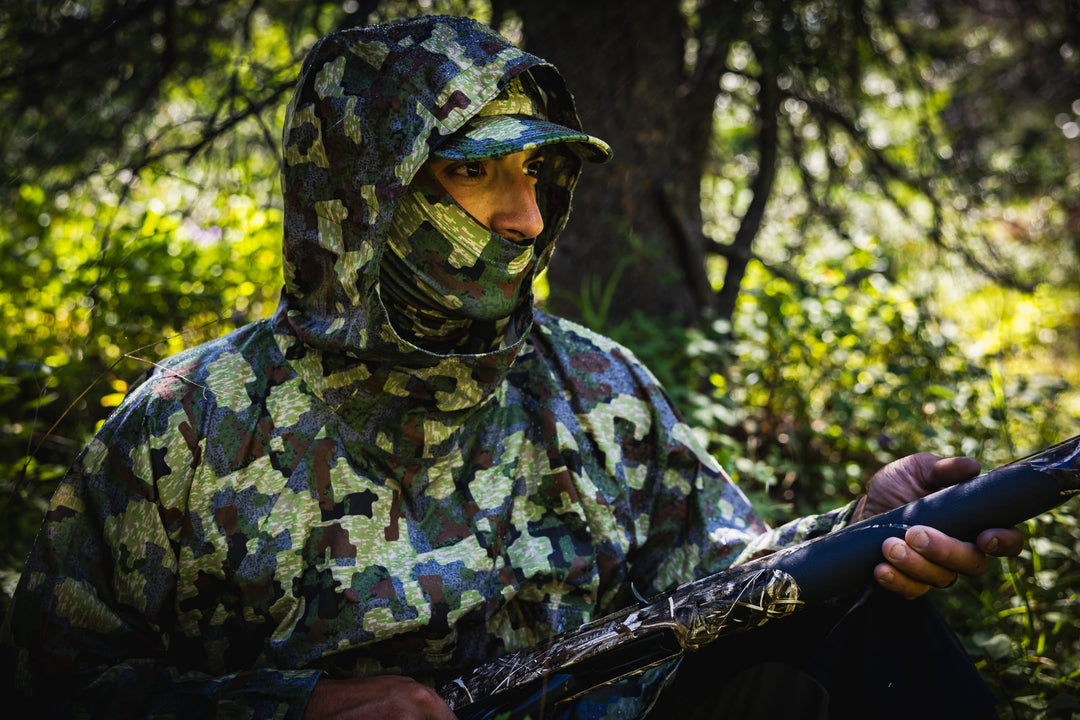Hunting is far more than a recreational activity—it is a critical wildlife management tool that maintains the delicate balance between human activity and our natural ecosystems. Ethical hunting challenges the misconception that hunting threatens animal populations. It represents a commitment to conservation, responsible resource management, and respect for the natural world.
Responsible hunting is a renewable natural resource management strategy. It helps maintain native biodiversity by controlling animal populations at levels compatible with local ecosystems and human land use. The FORLOH Foundation stands at the forefront of this mission, supporting sportsmen and women who approach the outdoors with integrity, knowledge, and a deep respect for nature. Through our standalone work and partnerships with charitable organizations, we actively participate in sustaining nature's delicate balance to ensure the long-term health and sustainability of wildlife populations.
|
Table of Contents |
What is Ethical Hunting?
Ethical hunting is a philosophy of respect, responsibility, and conservation guided by three fundamental principles:
- Understanding and respecting the game.
- Observing and obeying legal regulations.
- Demonstrating behavior that positively represents the hunting community.
Understanding and Respecting the Game
Ethical hunters develop a nuanced understanding and appreciation of the wildlife they pursue. This means knowing the animal's habitat, behavior, and ecological role. It's about seeing the hunt not as a conquest, but as a responsible interaction with nature. Hunters must intimately know the species and its environment, approaching the hunt with genuine respect for the animal's life and its role in the ecosystem.
Observing and Obeying Legal Regulations
Hunting regulations are not merely suggestions—they are critical tools for conservation. Ethical hunters meticulously follow seasonal restrictions, bag limits, and other wildlife management guidelines. These laws are carefully designed to ensure hunting remains a sustainable practice that supports, rather than depletes, wildlife populations.
Positively Representing the Hunting Community
By embracing certain principles and behaviors, hunters can become wildlife stewards. Below are some of the behaviors ethical hunters demonstrate to positively represent their communities:
The Concept of Fair Chase
Central to ethical hunting is the principle of “fair chase”—giving the animal a genuine opportunity to evade the hunter. This means:
- Avoiding mechanized pursuit.
- Rejecting electronic tracking devices.
- Ensuring the hunt relies on the hunter's skill, not technological advantage.
- Respecting the animal's natural abilities and habitat.
An Ethical Shot
The mark of a truly responsible hunter is not just in taking a shot, but in knowing when not to take a shot. This requires:
- Intimate training and knowledge of one's equipment.
- Understanding personal skill limitations.
- Prioritizing a quick, clean kill that minimizes animal suffering.
- Being prepared to forego a shot if conditions are not ideal.

Hunting and Wildlife Management
Wildlife management is a complex and critical science that relies on ethical hunting as a key conservation tool. Far from destructive, regulated hunting plays a pivotal role in maintaining ecological balance and preserving habitats for future generations. This intersection of wildlife conservation and hunting demonstrates how responsible human intervention can support natural ecosystems.
Environmental Benefits and Ecosystem Balance
Wildlife populations require careful management to prevent ecological disruption. When left uncontrolled, certain species experience population booms that create significant challenges for their health and the surrounding ecosystems. For instance, deer populations without natural predators can quickly become unsustainable, leading to:
- Increased disease transmission within herds.
- Habitat degradation through over-browsing.
- Reduced food availability for other wildlife species.
Historically, large predators like wolves and mountain lions naturally regulated these populations. With the reduction of these apex predators, hunters have become responsible for maintaining ecological equilibrium. Biologists carefully monitor wildlife populations and develop hunting regulations that support overall ecosystem health.
Conservation Funding and Land Preservation
Responsible hunting and conservation go hand in hand. Land management agencies—including the U.S. Fish and Wildlife Service, National Park Service, and state wildlife organizations—utilize hunting as a strategic conservation tool. Hunting permits, tags, and stamps generate revenue that directly supports the purchase and maintenance of critical wildlife habitats.
A remarkable example is the Federal Duck Stamp program, which since 1934 has:
- Raised over $1.1 billion for conservation efforts.
- Conserved more than 6 million acres of land within the national refuge system.
- Provided crucial funding for establishing and maintaining wildlife habitats.
Tips for Ethical and Responsible Hunting
You can uphold the principles of ethical hunting in your daily behavior by following these guidelines:
- Know and follow local regulations.
- Respect private property and public land rules.
- Choose sustainable hunting methods.
- Minimize waste by knowing how to field dress wild game and utilizing all parts of the animal.
- Practice safe firearm handling and environmental stewardship.
The FORLOH Foundation’s Commitment to Ethical Hunting
Organizations like the FORLOH Foundation uphold the principles of ethical hunting by working collaboratively with individuals as well as non-profit organizations. Together, we develop progressive charitable enterprises that extend beyond traditional wildlife management.
A standout example of the foundation's commitment is our "Hunters For Hungry" Initiative. The program originated during a hunt in Africa, where we provided meals to 34 children in an impoverished community. By donating meat from our hunt, we not only supported local nutrition but demonstrated hunting's potential for social good.
The "Hunters For Hungry" Initiative has since expanded its mission to:
- Provide food and supplies to families domestically and internationally.
- Deliver educational equipment to underserved communities.
- Demonstrate the broader social responsibility of ethical hunting.
Through our efforts, the FORLOH Foundation illustrates that ethical hunting is about more than wildlife management—it's about building connections, supporting communities, and promoting sustainable practices that benefit both human and animal populations.
How Hunters Can Support Conservation
By supporting conservation efforts, responsible hunters can become true stewards of the environment and champions of community welfare.
Here’s what you can do:
- Purchase licenses and tags to fund wildlife management.
- Support organizations and foundations focused on conservation.
- Volunteer or donate to projects that protect wildlife and habitats.
- Donate today to the FORLOH Foundations’ “Hunters For Hungry” Initiative.
Ethical Hunting FAQ
Is hunting ethical?
Yes—ethical hunting is a thoughtful and responsible approach to wildlife interaction that involves:
- Knowing and respecting the game you hunt.
- Following legal regulations.
- Behaving in a manner that meets societal expectations.
- Being intimately familiar with the hunting environment and wildlife.
Practicing ethical hunting techniques not only enhances your personal hunting experience but also helps secure the future of responsible outdoor recreation.
How does hunting contribute to conservation?
Hunters play a crucial role in wildlife conservation through several key mechanisms:
Federal Duck Stamp Program:
- Generates funds for wildlife habitat protection.
- 98 cents of every dollar goes directly to habitat conservation.
- Since 1934, has helped conserve nearly 6 million acres of wildlife habitat.
- Required for waterfowl hunting, directly supporting migratory bird conservation.
Pittman-Robertson Act:
- Generates conservation funding through excise taxes on hunting equipment.
- Has contributed over $14 billion to conservation since 1937.
- Supports:
- Wildlife conservation projects
- Hunter education programs
- Outdoor recreation access
- Instrumental in recovering populations of deer, turkeys, and numerous non-game species.
How can I ensure my hunting practices are ethical?
In addition to respecting the concepts of “Fair Chase” and “The Ethical Shot,” you can also ensure your hunting practices are ethical by following these unwritten laws:
Responsible Land Access
The fundamental rule is simple: If you don't have explicit permission, don't hunt.
When seeking land access, always:
- Ask for detailed permission from landowners.
- Clarify specific hunting times and conditions.
- Discuss:
- Preferred hunting hours
- Notification requirements
- Potential guest hunters
- Use of tree stands or ground blinds
- Follow up after the hunting season with a thank you.
- Consider offering assistance or a gesture of appreciation to the landowner.
Sharing Hunting Lands
Ethical hunters understand the importance of:
- Respecting other hunters' spaces.
- Prioritizing safety.
- Communicating openly about land use.
- Being flexible and considerate.
- Potentially collaborating with other hunting parties.
Key principles include:
- Arriving early does not guarantee exclusive hunting rights.
- Be willing to spread out and share appropriate spaces.
- Communicate with other hunters to create mutually beneficial arrangements.
- Always prioritize safety and mutual respect.
By following these guidelines, hunters can ensure they are practicing ethical, responsible, and conservation-minded hunting that supports wildlife management and preserves outdoor traditions for future generations.








